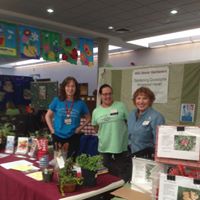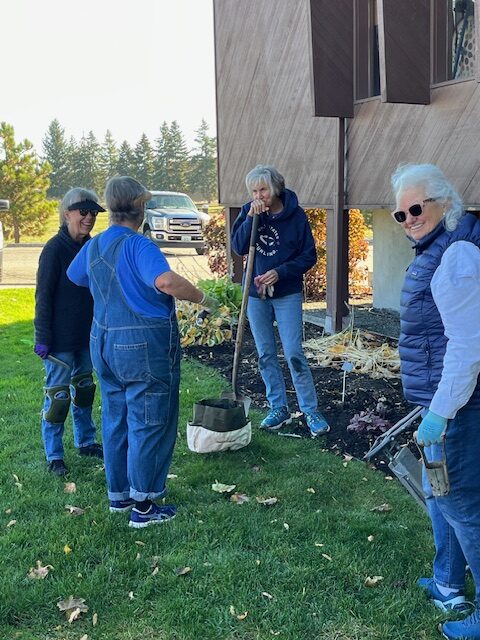The Foundation helps fund Master Gardener programs throughout Spokane County
As a land grant university, supported in part by federal grants, Washington State University is restricted in the activities it can fund. The Master Gardener Foundation of Spokane County was established to ensure that we can adequately fund Master Gardener Programs to deliver maximum benefit in Spokane County.
The Foundation’s Mission
The Master Gardener Foundation of Spokane County enhances the efforts of the Master Gardener Program and the community through fundraising, public awareness and educational activities.
The Foundation and the Program for the Master Gardeners of Spokane County are two separate but closely related entities. The Master Gardener Program advises and educates the public about gardening and horticulture, and has a rich history in the state of Washington as one of the first programs in the United States. Fifty years ago Spokane County established their program to provide accurate, research-based horticultural information to the community. Volunteers at the WSU Extension Master Gardener Plant Clinic answer questions about a wide variety of horticultural issues, including plant and tree selection, plant problem diagnosis and treatment recommendations, environmentally sound gardening and landscaping practices, pest and weed identification and management, and much more.


Helping the Program
- The Youth Program is active in many schools and after school programs teaching children about growing their food and environmental stewardship.
- The Community Garden Program helps interested community members learn to grow their own food. We assist in establishing and maintaining community gardens and educating about sustainable gardening practices.
- The Committee Composting Project is a grant-funded project that focuses on building compost bins at community gardens and food banks, and educating the community about strategies to decrease organic waste in our waste streams.
- Master Gardeners are in high demand as community educators. We offer many gardening courses, and have a speakers’ bureau to provide MG speakers to public events and community groups.
Master Gardeners Statewide
- 4,000+ Volunteers cultivating plants, people & communities since 1973.
- 300,000+ Volunteer Hours: In a given year, volunteers contribute over three hundred thousand hours helping their local communities. Time spent addresses important issues facing Washington residents. Volunteers are trained in research-based horticulture and environmental stewardship and teach sustainable gardening practices to individuals and communities to mitigate the effects of climate change, to keep our waterways clean and plentiful, to improve soil health and promote the health of pollinators, to improve food security, to preserve biodiversity, to reduce the risk of loss due to wildfire and to encourage people to get out into nearby nature.
- 60,000 Pounds of Produce: Volunteers teach people to grow their own food via demonstrations and workshops. The produce grown in our demonstration and community gardens across the state is donated to local food banks to help Washingtonians in need.
- 100+ Free Answer Clinics: Thousands of volunteers staff hundreds of clinics in Extension Offices, nurseries, garden centers, farmers markets and hardware stores across the state. We are available to answer your gardening questions, free of charge, so that you can get scientifically backed answers to your problematic questions.
- Dozens of Demonstration & Community Gardens: Volunteers manage demonstration and community gardens. These gardens are outdoor classrooms where we answer your questions and demonstrate sound gardening practices covering a broad range of gardening topics. From apples to zinnias, we’re here to help you.
- Children’s Gardening Education: Volunteers engage with the next generation of gardeners to start them off on the right foot. Our foundations provide the funding for dozens of children’s gardening classes throughout the state. We want your children to love gardening and to learn how to garden sustainably.
